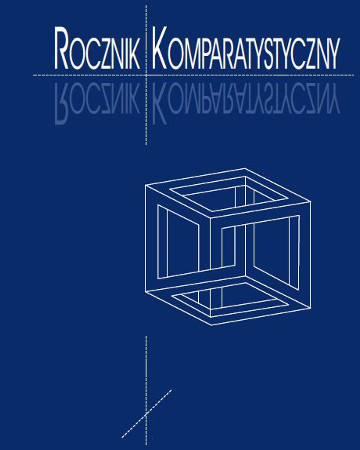





| Autorzy: |
Anqi
Liu
University of Georgia, USA |
| Słowa kluczowe: | literatura chińska Li Yivun zbiorowość literatura emigracyjna Edward W Said Gao Xingjian indvwidualizm |
| Data publikacji całości: | 2019 |
| Liczba stron: | 15 (69-83) |
| 1. | Figueira, Dorothy Matilda. Otherwise Occupied: Pedagogies of Alterity and the Brahminization of Theory. Albany: State University of New York Press, 2008. |
| 2. | Gadamer, Hans-Georg. “Destruction and Deconstruction.” Dialogue and Deconstruction: The Gadamer–Derrida Encounter. Eds. Diane P. Michelfelder, Richard E. Palmer. Albany: State University of New York Press, 1989. 102–133. |
| 3. | Gálik, Marián. “Gao Xingjian’s Novel Lingshan (Soul Mountain): A Long Journey in Search of a Woman?”. Canadian Review of Comparative Literature/Revue Canadienne de Littérature Comparée, 30.3–4 (2003): 611–630. |
| 4. | Gao, Xingjian. Ink Painting. Taipei: Taipei Fine Arts Museum, 1995. |
| 5. | ------. “Nationalist myth and individualistic madness”. Mingbao Yuekan 8 (1993): 16 (English translation revised from Henry Y.H. Zhao’s Towards a Modern Zen Theatre: Gao Xingjian and Chinese Theatre Experimentalism [London: School of Oriental and African Studies, 2000], 128). |
| 6. | ------. One Man’s Bible: A Novel. New York, NY: HarperCollins Publishers, 2002. |
| 7. | ------, Mabel Lee. Soul Mountain [Ling Shan]. New York: Harper Collins Publishers, 2000. |
| 8. | Huang, Alexander C.Y. “The Theatricality of Religious Rhetoric: Gao Xingjian and the Meaning of Exile.” Theatre Journal 63.3 (2011): 365–379. |
| 9. | Lee, Mabel. “Gao Xingjian on the Issue of Literary Creation for the Modern Writer.” Journal of Asian Pacific Communication 9 (1999): 83–96. |
| 10. | Li, Yiyun. “To Speak is to Blunder: Choosing to Renounce a Mother Tongue.” The New Yorker. January 2, 2017a. |
| 11. | ------. Dear Friend, from My Life I Write to You in Your Life. New York: Random House, 2017b. |
| 12. | Said, Edward W. Representations of the Intellectual: The 1993 Reith Lectures. New York: Vintage Books, a division of Random House, 1994. |
| 13. | ------. The Mind of Winter: Reflections on Exile and Other Essays. Cambridge, MA: Harvard University Press, 2000. |
| 14. | ------. “The Public Role of Writers and Intellectuals.” The Nation 8 (2001): 27–33. |
| 15. | Wang, Liying. “The Concept of Freedom in Gao Xingjian’s Novel One Man’s Bible.” Polyphony Embodied: Freedom and Fate in Gao Xingjian’s Writings. Eds. Michael Lackner, Nikola Chardonnens. Berlin–Boston: De Gruyter, 2014. 93–98. |